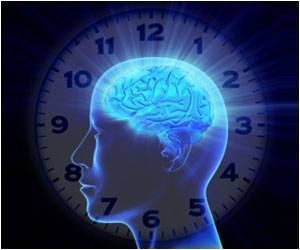Childhood hypertension may affect cognition, causing problems in learning and social interaction. Early diagnosis and treatment may improve their cognitive skills.
Highlights:
- Prevalence of childhood hypertension is increasing, in parallel with the increase in childhood obesity.
- Childhood hypertension affects cognition and cognitive development.
- Hypertensive children perform poorly in tests that assess cognitive skills
- Early diagnosis and treatment of hypertension in children help to reduce or reverse the cognitive impairment.
Lead Up To The Study
The effects of hypertension on the brain such as posterior reversible encephalopathy syndrome (PRES), infarction and hemorrhage are known and have been extensively researched. However, it has recently come to light that such children also have impaired cognitive skills, causing learning disabilities and defects in executive functions that were measured using tests and predefined parameters. Studies have also demonstrated improvement in the cognitive skills and performance of these children following anti-hypertensive treatment.Little research has been done in this area, and more studies are needed to understand the full range of effects of childhood hypertension on the brain in general, and effects related to cognition in particular.
Details of The Study
Marc B. Lande, MD, MPH, and investigators from the University of Rochester, Emory University, Maimonides Medical Center, University of Texas at Houston, University of North Carolina, Thomas Jefferson University, University of Maryland, and the University of California at Los Angeles, made a comparison of different tests of cognitive skills between 75 children between the ages of 10 to 18 with newly-diagnosed hypertension and 75 matched children without hypertension. Children having other factors or conditions known to affect cognitive skills were excluded from the study (e.g., ADHD, learning disabilities, sleep disorders ).
According to Dr. Lande, “We wanted to make sure that if we found differences between children with and without hypertension, it was likely associated with hypertension itself, not any of these other factors.”
The cognitive skills tests conducted measured aspects such as visual and verbal memory, processing speed, and verbal skills.
The researchers found that children with hypertension fared worse on the tests of cognitive skills, that were based on the above parameters. Also many children with sleep disorders had hypertension and lack of sleep compounded their poor performance in cognitive tests and executive functioning.
This study demonstrates that childhood hypertension does impair the performance on cognitive testing.
In conclusion, more research is required to understand the effects of hypertension on the pediatric brain, and how these findings may be applied in the areas of cognition, improving the quality of life and brain health.
Future Research Plans
- The team plans to study whether
there are any physical changes present in the brain that might explain the
impaired cognitive abilities of hypertensive children.
Notes Dr. Lande, “In the future, we want to better understand if there are physical changes to the brain in children who have hypertension that could explain these cognitive test results.” - They also plan to study if anti-hypertensive treatment improves cognitive skills in hypertensive children and can help to reverse or prevent long term adult hypertension associated issues.
The prevalence of childhood hypertension is increasing in parallel with the epidemic of childhood obesity.
Prehypertension is defined as blood pressure measurement between the 90th percentile, and the 95th percentile, for sex, height, and age or a reading of 120/80 mm Hg or more. Hypertension is defined as blood pressure in the 95th percentile or higher. In children, a secondary cause of the hypertension is more frequent with the renal disease being the one most commonly implicated. Primary hypertension is most often linked to being overweight and obese.
It cannot be over emphasized that hypertensive children should also be screened for presence of other risk factors for cardiovascular diseases, diabetes mellitus and hyperlipidemia, and should undergo an ophthalmoscopic examination and echocardiography to evaluate the status of their retinas and hearts.
Treatment mainly involves lifestyle changes, including weight loss for children who are overweight or obese; eating a healthy and balanced diet, low in salt; following a regular exercise regimen and physical activity; and avoiding smoking and alcohol.
Medications may become necessary in the presence of persistent hypertension, if it is symptomatic, associated with diabetes, in the presence of organ damage or if the hypertension is due to an underlying cause (secondary hypertension).
References
- Stephen D Cha; The Effects of Hypertension on Cognitive Function in Children and Adolescents; International Journal of Pediatrics 2012
- Madhu Sharma MD et al; The Effects of Hypertension on Pediatric Brain; A Justifiable Concern; The Lancet Neurology Volume 9, No. 9, p933–940, September 2010
- High Blood Pressure in Children and Adolescents - (http://www.aafp.org/afp/2012/0401/p693.html)
















